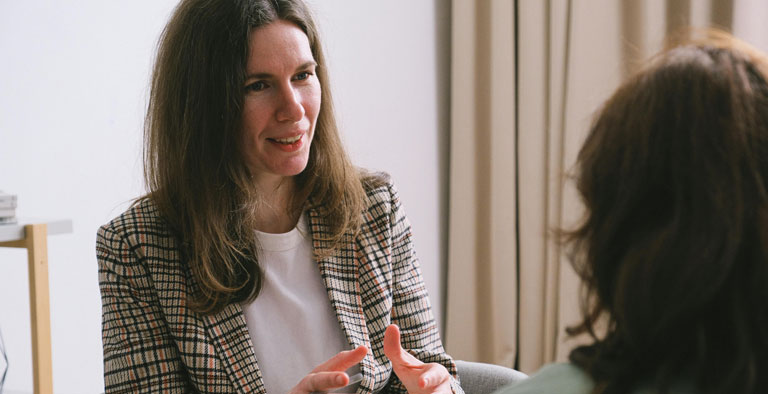Accepting Imperfection: The Key to Letting Go and Finding Peace
Let’s face it—nobody’s perfect. We all know this on some level, but actually accepting it? That’s a whole different ballgame. Whether it’s a mistake at work, a slip-up in a relationship, or something as simple as not being able to stick to a workout plan, imperfection is a part of life. Yet, so many of us struggle with accepting it.
Why? Well, we live in a culture that’s all about pushing for more—more success, more achievement, more ‘perfection.’ We’re surrounded by images of people who seem to have it all together. Social media, glossy magazines, and even TV shows can make it feel like everyone else has life figured out. And that can leave us feeling like we’re falling short. The pressure to be flawless creeps in, and suddenly, our imperfections feel more like failures than just part of being human.
But here’s the thing: accepting imperfection can actually lead to a much more peaceful and fulfilling life. In fact, the constant chase for perfection might be the very thing keeping you stuck. So, how do you let go of the need to be perfect and embrace who you are, flaws and all? Let’s dive in.
The Weight of Perfectionism
Before we talk about how to accept imperfection, let’s take a second to acknowledge how heavy perfectionism can feel. It’s like carrying a backpack full of bricks—you’re constantly weighed down by the fear of making mistakes. Whether in your job, relationships, or personal goals, perfectionism keeps you in a cycle of stress and self-doubt.
And the worst part? Perfectionism is exhausting. It robs you of your peace and prevents you from enjoying the moment. When you’re always focused on what could go wrong or how things aren’t “good enough,” it’s hard to appreciate what’s right in front of you. And over time, that constant striving can lead to burnout, anxiety, and even depression.
The truth is, nobody expects you to be perfect. Most of the time, the pressure we feel comes from ourselves. We set these impossible standards and then beat ourselves up when we can’t meet them. But here’s the thing: what if you didn’t have to be perfect? What if you could just be enough, exactly as you are?
Why Embracing Imperfection Matters
Letting go of the need to be perfect is about more than just reducing stress—though that’s a pretty big benefit. It’s about learning to love and accept yourself as you are, flaws and all. It’s about realizing that you don’t have to be flawless to be worthy of love, success, and happiness.
When you accept imperfection, you give yourself permission to be human. You start to see mistakes not as failures but as opportunities to grow. You begin to appreciate the journey, rather than obsessing over the destination. And you learn to enjoy life a lot more.
Think about it: some of the most beautiful things in life are imperfect. Nature, for example, is full of flaws—yet it’s stunning. Mountains aren’t perfectly symmetrical, yet they’re awe-inspiring. Trees grow crooked, but they’re still majestic. Why? Because their imperfections are what make them unique.
The same goes for people. The quirks, the so-called ‘flaws,’ and the mistakes are what make us who we are. When we embrace our imperfections, we become more authentic. And that authenticity is what allows us to connect with others on a deeper level.
How to Start Accepting Imperfection
So, how do you actually go about accepting imperfection? It’s not like you can just flip a switch and suddenly be okay with your flaws, right? It takes time and practice, but it’s totally doable. Here are a few tips to help you get started:
1. Change Your Self-Talk
One of the biggest barriers to accepting imperfection is the way we talk to ourselves. We can be our own harshest critics, nitpicking every little thing we do wrong. But here’s the thing: that inner critic isn’t helping you. In fact, it’s probably making things worse.
Start paying attention to how you talk to yourself. When you catch yourself being overly critical, pause and reframe it. Instead of saying, “I’m such a screw-up for missing that deadline,” try saying, “I made a mistake, but it’s okay. I’ll do better next time.” The goal isn’t to ignore mistakes but to be kinder to yourself when they happen.
2. Set Realistic Expectations
A big part of accepting imperfection is letting go of unrealistic standards. It’s great to have goals and aspirations, but if you’re constantly setting the bar so high that it’s impossible to reach, you’re setting yourself up for disappointment.
Take a look at your expectations. Are they reasonable? Are you expecting yourself to be perfect 100% of the time? If so, it’s time to dial it back. Set goals that challenge you but are also achievable. And remember, progress is more important than perfection.
3. Celebrate Your Wins (Big and Small)
When you’re focused on perfection, it’s easy to overlook the progress you’re making. You get so caught up in what didn’t go right that you forget to celebrate what did. But recognizing your achievements—no matter how small—is crucial in learning to accept imperfection.
Make it a habit to celebrate your wins. Whether it’s finishing a project at work, handling a tough conversation, or even just sticking to a new habit for a week, take a moment to acknowledge your efforts. It’s a great way to shift your focus from what’s wrong to what’s going well.
4. Practice Self-Compassion
Learning to be compassionate with yourself is key when it comes to accepting imperfection. We’re all human, and we’re all going to make mistakes. It’s part of life. But instead of beating yourself up when things don’t go as planned, try treating yourself with the same kindness and understanding that you would offer a friend.
When you slip up, remind yourself that it’s okay to make mistakes. Give yourself permission to not have it all together all the time. Self-compassion is all about recognizing that you’re doing the best you can, even when things don’t go perfectly.
5. Surround Yourself with Support
Finally, don’t underestimate the power of community. Surrounding yourself with people who support and encourage you can make a huge difference in your ability to accept imperfection. Whether it’s friends, family, or even a therapist, having a support system in place can help you stay grounded and remind you that you’re not alone in this journey.
Talking to others about your struggles with perfectionism can also help you see that everyone deals with it in some way. Sometimes, just knowing that you’re not the only one can make it a little easier to let go of the pressure to be perfect.
Ready to Let Go of Perfection?
At the end of the day, accepting imperfection is about freedom—freedom from the unrealistic standards we place on ourselves, freedom from the fear of making mistakes, and freedom to just be ourselves. It’s about embracing the messy, beautiful, and sometimes chaotic journey of life, rather than trying to control every little outcome.
When you stop chasing perfection, you make room for more joy, connection, and peace in your life. You start to realize that you’re enough, just as you are. And that, in itself, is a pretty powerful thing.
So, the next time you find yourself stressing over a mistake or feeling like you’re not measuring up, take a deep breath. Remember that nobody’s perfect—and that’s okay. Accepting imperfection doesn’t mean you’re giving up; it means you’re giving yourself the space to grow, learn, and live more fully.
Reach out to us at Menachem Psychotherapy Group, and let’s start the journey to accepting your imperfections—and finding the freedom that comes with it.





